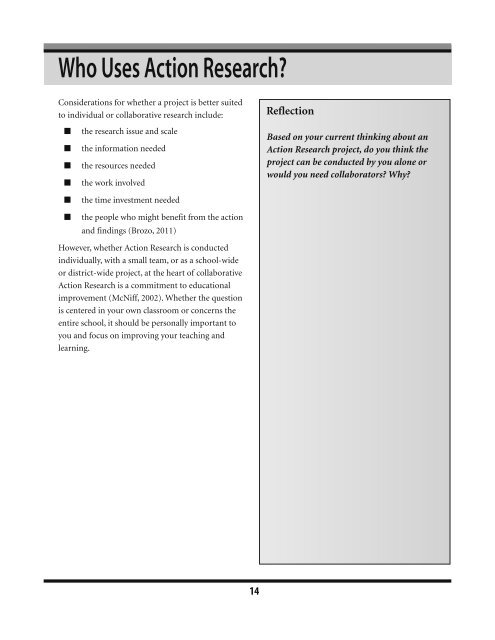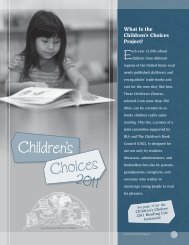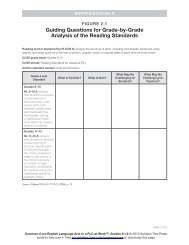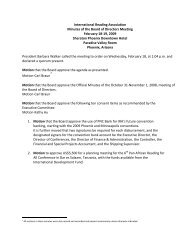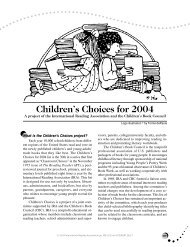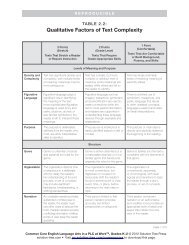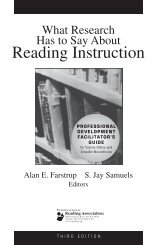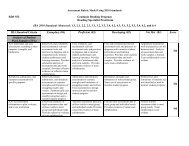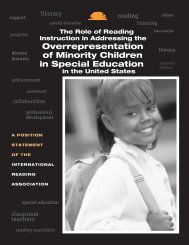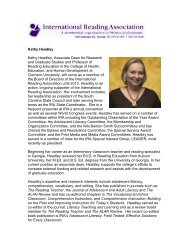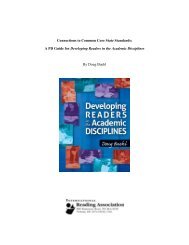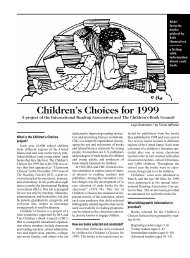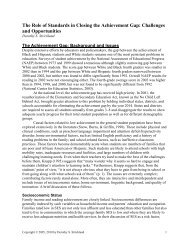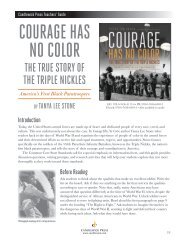A Practical Guide to Action Research for Literacy Educators
A Practical Guide to Action Research for Literacy Educators
A Practical Guide to Action Research for Literacy Educators
You also want an ePaper? Increase the reach of your titles
YUMPU automatically turns print PDFs into web optimized ePapers that Google loves.
Who Uses <strong>Action</strong> <strong>Research</strong>?<br />
Considerations <strong>for</strong> whether a project is better suited<br />
<strong>to</strong> individual or collaborative research include:<br />
Reflection<br />
■<br />
■<br />
■<br />
■<br />
■<br />
■<br />
the research issue and scale<br />
the in<strong>for</strong>mation needed<br />
the resources needed<br />
the work involved<br />
the time investment needed<br />
the people who might benefit from the action<br />
and findings (Brozo, 2011)<br />
Based on your current thinking about an<br />
<strong>Action</strong> <strong>Research</strong> project, do you think the<br />
project can be conducted by you alone or<br />
would you need collabora<strong>to</strong>rs? Why?<br />
However, whether <strong>Action</strong> <strong>Research</strong> is conducted<br />
individually, with a small team, or as a school-wide<br />
or district-wide project, at the heart of collaborative<br />
<strong>Action</strong> <strong>Research</strong> is a commitment <strong>to</strong> educational<br />
improvement (McNiff, 2002). Whether the question<br />
is centered in your own classroom or concerns the<br />
entire school, it should be personally important <strong>to</strong><br />
you and focus on improving your teaching and<br />
learning.<br />
14


